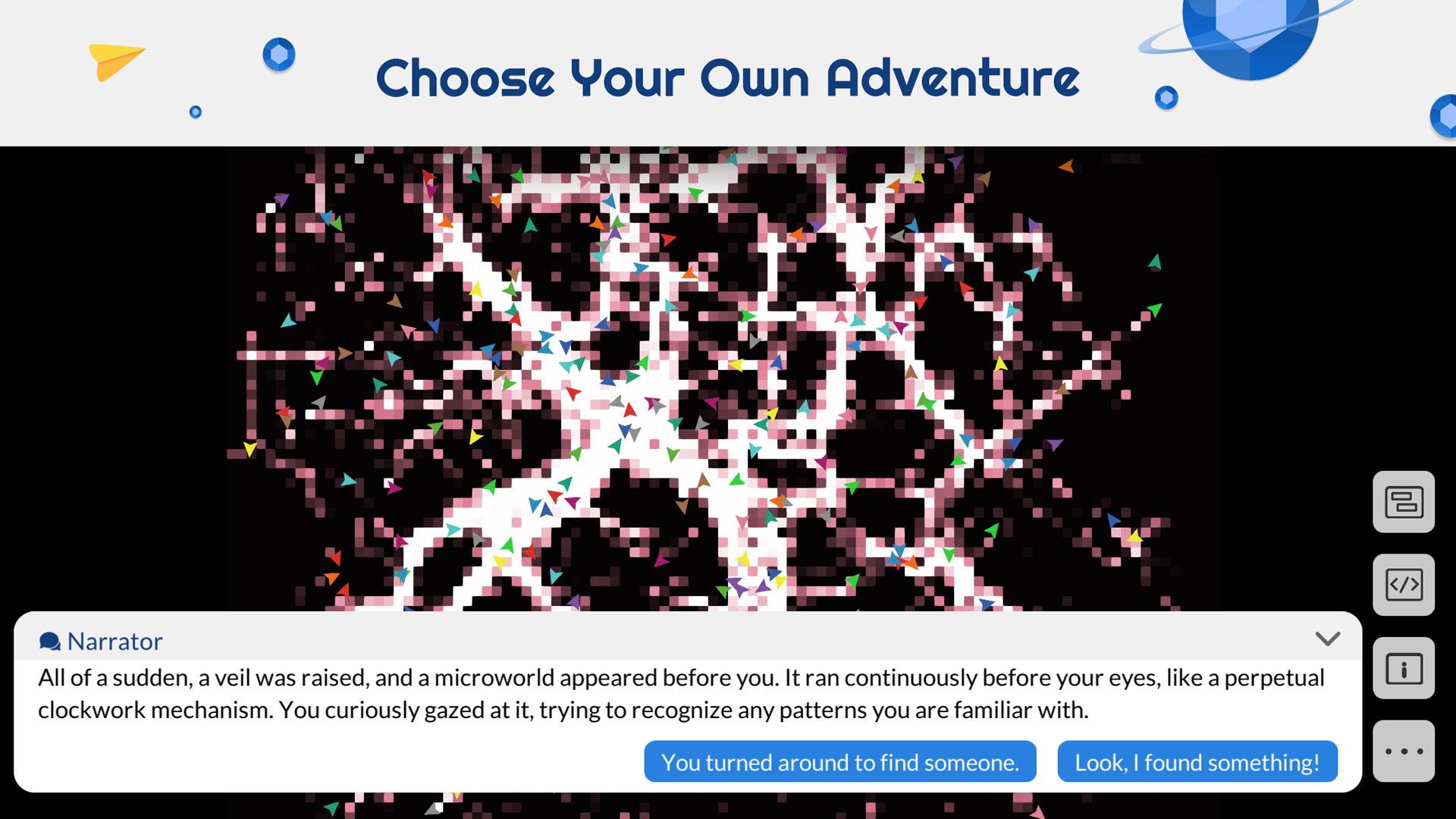NetLogo Mobile: Introduction to A New Incarnation of NetLogo with embedded tools for Designing Interactive Scaffolds
Date:
Since 2020, NetLogo Mobile has been developed into Turtle Universe, a full-fledged agent-based modeling and programming app for children, educators, and enthusiasts. It is the foundation of Tortuga (an editor for interactive tutorials), NetLogo AR, and NetLogo Chat. By May 2024, it has been used by 105,932 people around the world.
This is an interactive demo talk that I was not able to physically present. Again, due to the pandemic. Here documents my planned session, where I introduced the prototype of Tortuga, an editor for interactive tutorials.
Chen, J., & Wilensky, U. J. (2021). NetLogo Mobile: Introduction to A New Incarnation of NetLogo with embedded tools for Designing Interactive Scaffolds. Presented at ISLS Annual Meeting 2021.
Behind the Scene
In 2020, I started sending out prototypes to many online kids through my other project, Physics Lab. In an informal, online setting, children reported challenges understanding the basics of agent-based modeling and programming. Children have many questions about what NetLogo could do for them. However, as learners come from very diverse backgrounds and with different learning interests, we cannot enforce a rigid curriculum like the classroom. Hence comes Tortuga: a system to create adaptable and adaptive scaffolds.

The best way to experience it is always to try it out!
Aftermath
Several projects and papers were developed with Tortuga.
- The Pocketworld Playground (Full Paper published in IDC 2023): A constructionist playground for creating your first agent-based program. A related paper for evaluating open-ended agent-based programs was presented at AERA 2023.
- Guided Intros in Turtle Universe (Full Paper published in FLC 2023
Original Summary
We propose a demo session for NetLogo Mobile, the new incarnation of NetLogo for informal and formal learning contexts, and its embedded tools for researchers and educators to design interactive scaffolds. Based on constructionist and situated learning theories, we aim to empower learners to be full participants in agent-based forms of computational media to foster computational thinking. We then walk through the design of the software and describe two sections of the session.
